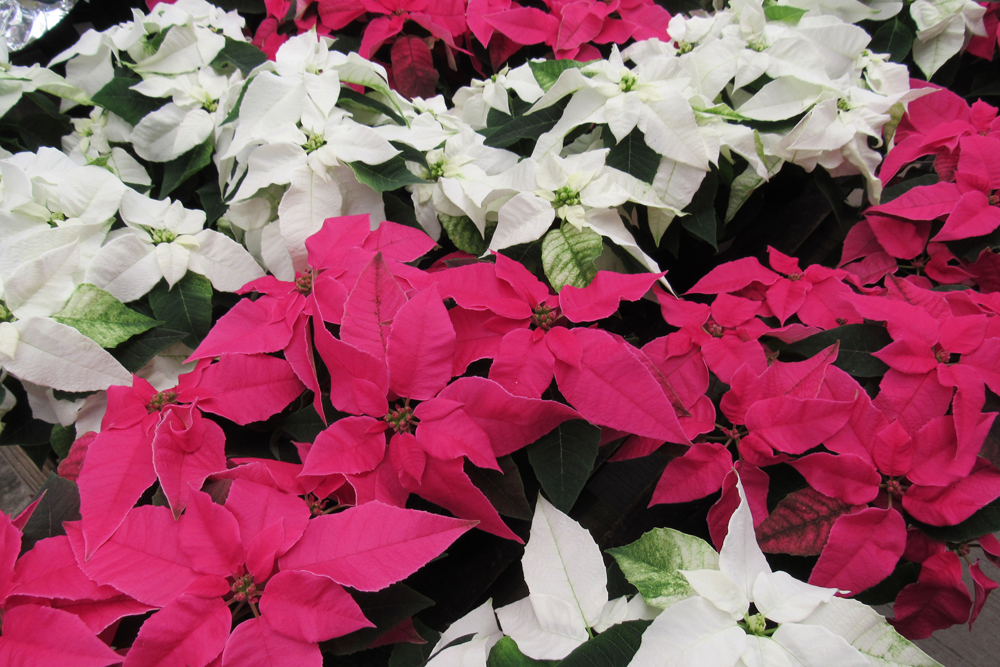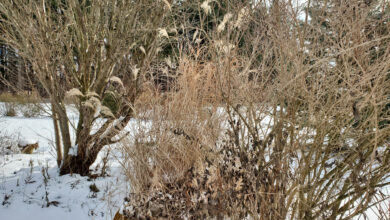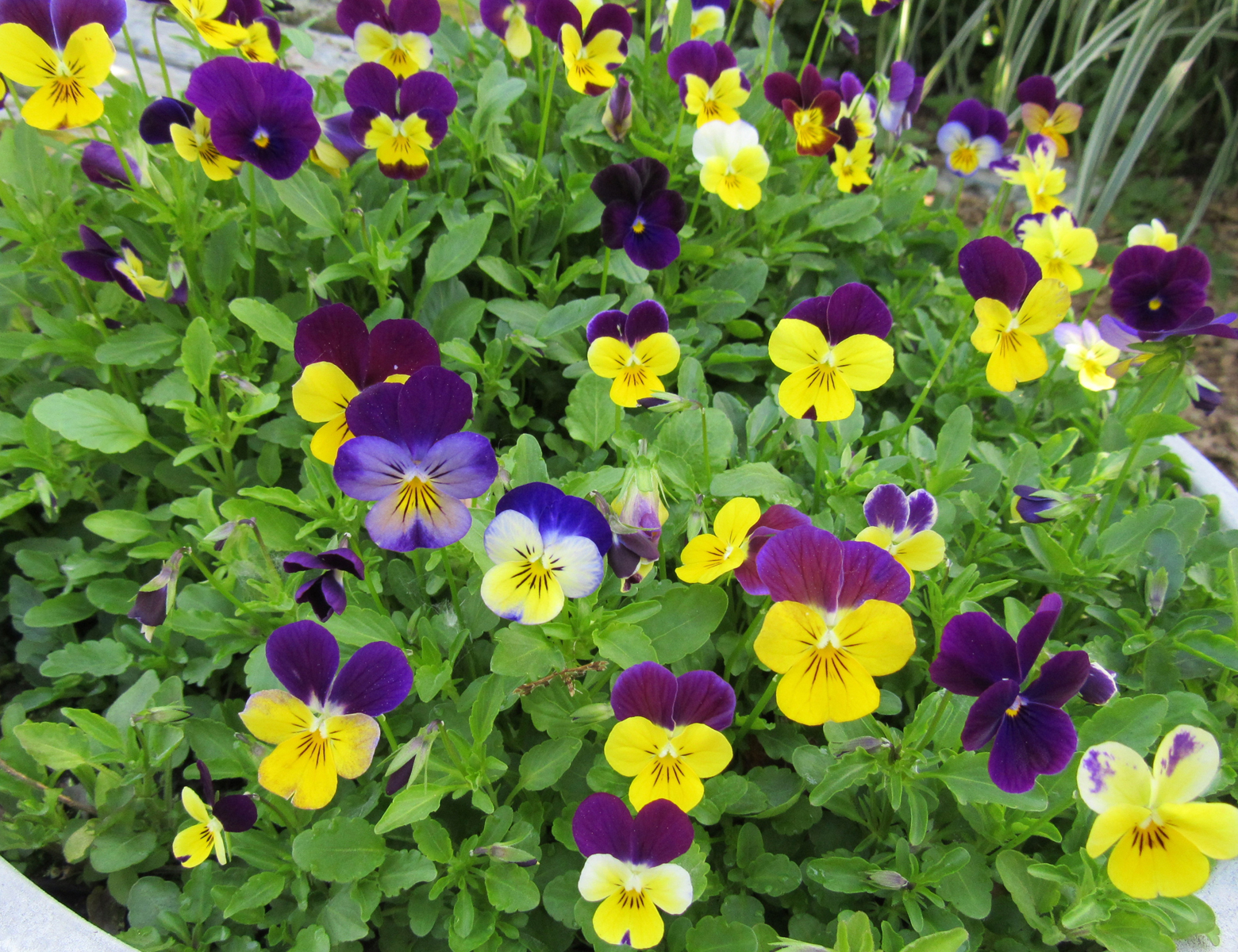Get out and grow – Garden color from unusual elements
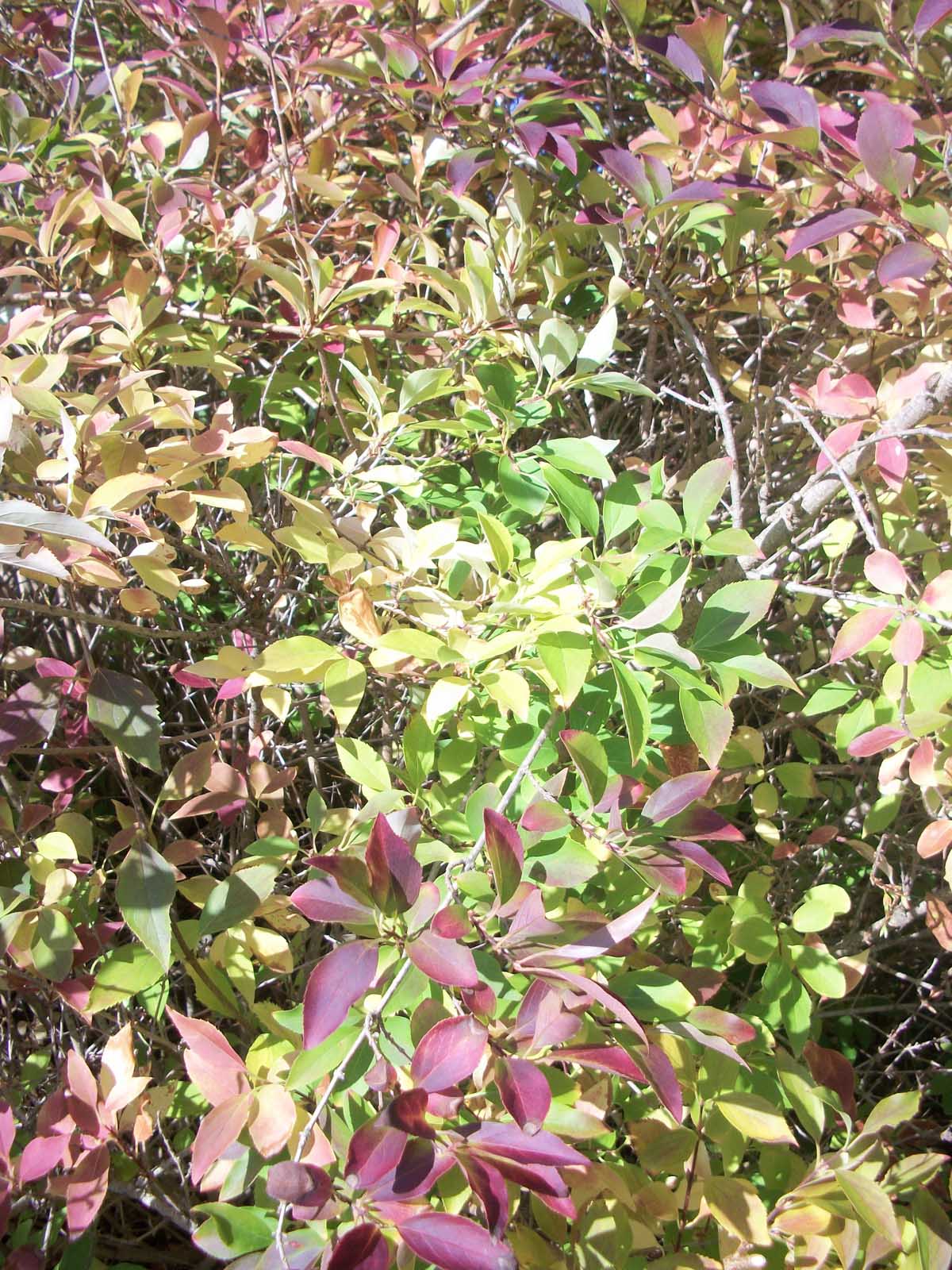
In my yard it’s one of the most anticipated harbingers of spring – bright yellow forsythia which brings pockets of sunshine to even the drabbest of early spring days. This undemanding easy care shrub provides structure to my plantings all summer and, now in late autumn, has been adding color even after much of the bright autumnal foliage has fallen from deciduous trees.
The forsythia foliage turns a mix of colors – from yellows to reds to deep burgundy – which I find very pretty. The color begins early in October and persists into November.
Other common and easy-care shrubs also provide lovely color and interest in fall, even though they are typically planted for their spring or summer blooms. Spirea turns golden and burgundy with splashes of bright red and orange. One of my varieties has several blooms right now in late autumn in addition to the colorful foliage.
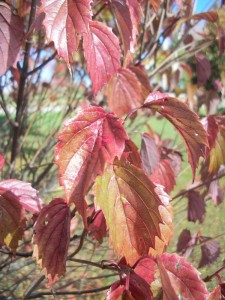
Viburnum (Viburnum trilobum) has while flower clusters in spring and in fall the leaves turn bright red/orange. Some have shiny red berry clusters which add to the autumnal show.
For all their spring glory, lilacs look pretty dreadful by this time of year. One exception, however, are my Miss Kim Korean lilacs whose leaves turn a deep purple/burgundy before they fall – which is a little earlier than my other shrubs.
It’s nice to have a plant that offers multi-season interest such as these shrubs. They add plenty of interest to my yard at this time of year even though most of them aren’t planted specifically for a fall show.
Of course, there are many varieties of shrubs which are well-known for their autumn display of color.
I have aptly-named Burning Bush (Euonymus alatus) which grows quite large and has a rounded shape with deep green leaves all summer. In fall the leaves turn a spectacular crimson red/pink and the plant also produces small, orange-colored berries. I’ve read that in some places in New England the plant is considered invasive as it will become so under certain conditions.
Here are some other shrubs which offer amazing fall color:
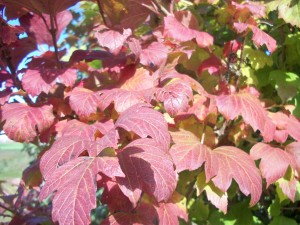
Smoke bush (Cotinus coggygria) is a spectacular shrub in autumn. This plant can get large so give it a spot with some room and prune out unwanted branches after flowering. The foliage turns brilliant red and orange in the fall.
Chokeberry (Aronia arbutifolia) has white flowers in spring and brilliant orange/red foliage in fall. It also produces red fruit in late summer/autumn. Serviceberry (Amelanchier canadensis) also has white spring flowers and orange and red autumn foliage. Fothergilla (Fothergilla major) sports blue-green foliage in spring and summer and gold and orange leaves in the fall. Oak leaf hydrangea (Hydrangea quericifolia) produces white blooms in the summer. In autumn the leaves are deep burgundy.
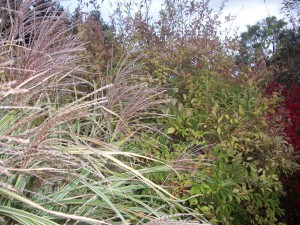
To really pump up your autumn landscape, consider mixing shrubs with ornamental grasses. The combination of colored leaves and seed heads on the grass is beautiful and produces movement in the garden. The grass will keep up interest even after the leaves drop.
I am putting the planting more autumn-interest shrubs on my to-do list for next year. Now is a good time to get inspiration by taking notice of what looks good in yards at this time of year. Garden centers also typically feature seasonal shrubs in their displays. Once established, shrubs are some of the easiest plants to grow and they add so much to the landscape year-round.


